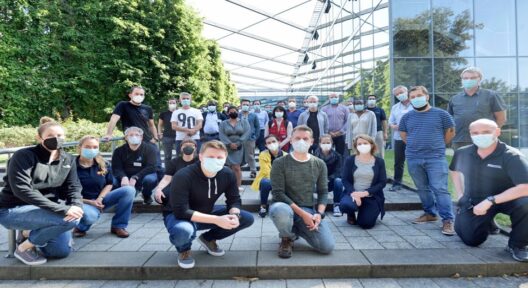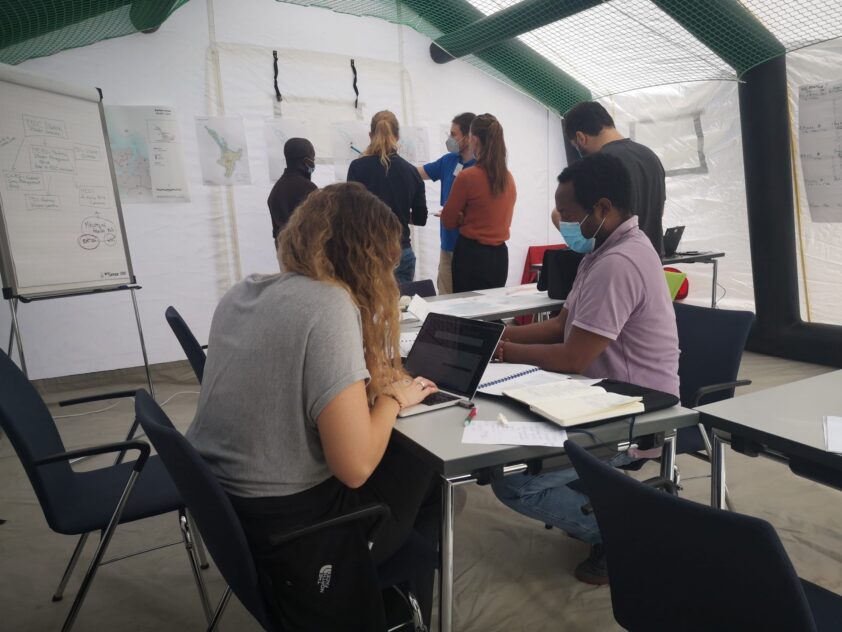Emergency Medical Team Coordination Cell (EMTCC) Training in Berlin
As a contribution to national and international health capacity strengthening, an EMT Coordination Cell (EMTCC) training was successfully conducted in the framework of the GHPP project “Emergency Medical Team Twinning & Training” (EMT TT) jointly with WHO.

It was the first large face-to-face training of the department Centre for International Health Protection (ZIG) in an international setting since the start of the pandemic and carried out in compliance with a strict hygiene concept. The training course was implemented by the team of the EMT National Focal Point at RKI and took place in Berlin from 29 August to 3 September 2021 with 23 international and national EMT experts participating and a faculty team comprised of colleagues from the EMT Secretariat of WHO, RKI, Training In Aid and the UN Disaster Assessment and Coordination (UNDAC) team from UN OCHA.

An EMT Coordination Cell (EMTCC), typically led by the Government health authority of an affected country, is responsible for coordinating both national and international EMTs during each phase of the response following a disaster, outbreak or other health emergency and may request for support from WHO and the EMT Secretariat. The purpose of an EMTCC training is to familiarize participants with the EMT coordination methodology, in order to support the national response based in the national Health Emergency Operations Center (HEOC) and incident management system. In the future, training graduates will be supporting EMTCCs in staff functions, as MoH or WHO counterparts and/or in their capacity as EMT experts interacting with the EMTCC as responders.
The training participants consisted of members of governmental and non-governmental EMTs, Ministries of Health, WHO country and regional offices, the International Federation of Red Cross/Red Crescent Societies (IFRC) and the German Red Cross, as well as from the UNDAC team. WHO Regions represented in the training included EURO, AFRO, EMRO and PAHO.
The training was facilitated by a seven-member faculty team with representatives from each of the main partner organizations involved. In addition, several role players from the German EMTs Cadus, humedica, Johanniter International as well as RKI and WHO took part in the 1,5-day simulation exercise (SIMEX) which was the highlight of the course. Cadus generously supported the training by providing three large tents for the SIMEX which simulated the coordination of an EMT response during a natural disaster in an ongoing pandemic in a remote island state.
Within the activities of the EMT TT project, further EMTCC trainings and workshops are planned in the future to improve the coordination of international and national EMT deployments. These activities greatly contribute to the strengthening of national and international health care systems in the field of Health Emergency Response and Health Operations Management.


